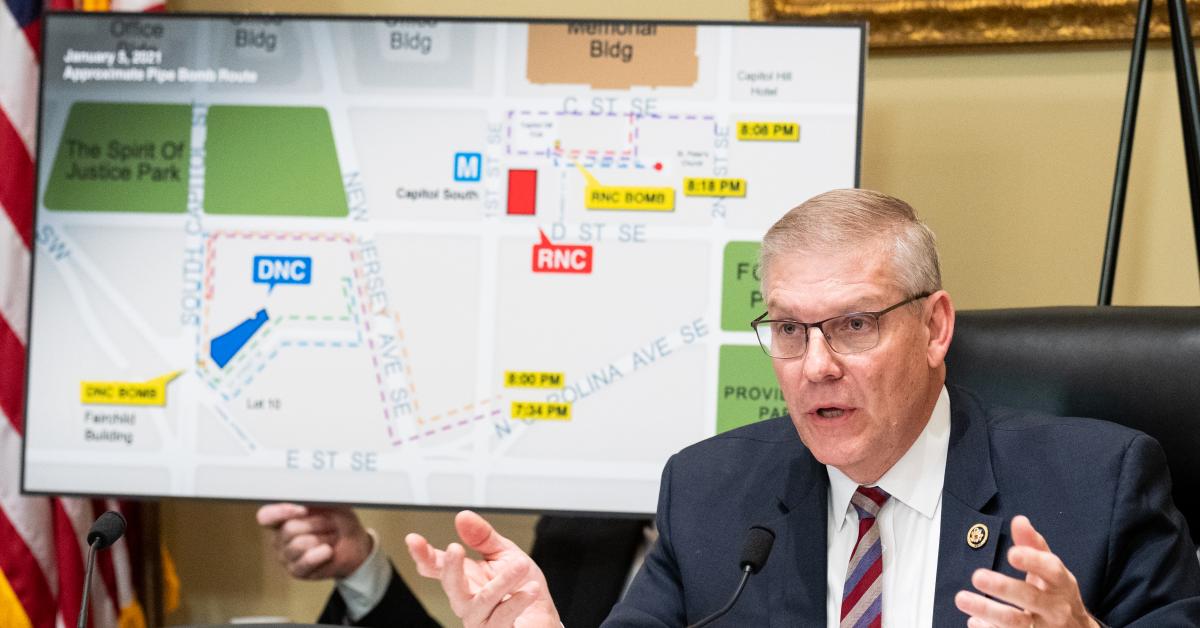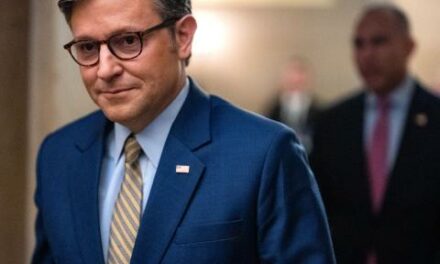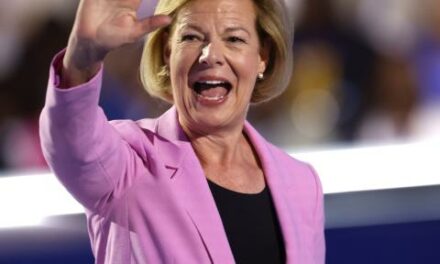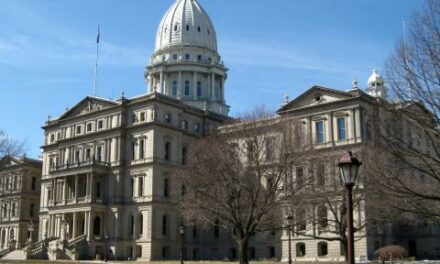We support our Publishers and Content Creators. You can view this story on their website by CLICKING HERE.

A new interim report from House Republicans focused on the failures of the Democrat-led probe into January 6 accentuated concerns about the independence of the federal watchdog office within the Pentagon charged with oversight after their investigation faced stonewalling and delays.
During his campaign, President-elect Donald Trump specifically targeted Inspectors General offices for reform, floating a plan to make them entirely independent from the agencies and departments they oversee to promote better oversight.
The Defense Department’s Inspector General is just one of 72 statutory watchdog offices tasked with overseeing federal agencies and departments. This is not the first time one of the offices has faced scrutiny for lack of independence. In August, Republicans launched a probe into the Homeland Security Department’s IG after the Biden administration allegedly curtailed its ability to provide unredacted reports to Congress.
In its latest report on its progress investigating the aftermath of the January 6 riot and subsequent Select Committee probe, the House Administration Oversight Subcommittee led by Chairman Barry Loudermilk said that IG office both “obstructed” their work and maintains an “inappropriately close relationship” to the Pentagon which compromises its ability to independently oversee the department.
IG’s are “deferential” to agencies
“It is the Subcommittees’ assessment of the DoD IG’s investigation of the events on January 6, 2021, that the DoD IG is inappropriately deferential to the DoD,” the committee concluded. “As such, the DoD IG may be incapable of providing an unbiased, independent review of DoD actions.”
You can read the report below:
Loudermilk’s committee first approached the Defense Department’s IG Robert Storch to request a unredacted version of the agency’s review of the Pentagon’s role and responsibilities as it related to security failures January 6. The report was widely criticized by by several D.C. National Guardsmen-turned-whistleblowers, who excoriated Pentagon leadership for whitewashing their failures.
However, DOD IG Storch declined to provide the unredacted report citing orders from the Department of the Army and the FBI. Storch also declined to furnish the witness interview transcripts that Loudermilk had requested.
Eventually, the OIG consented to allow the committee to review a “minimally redacted” version of the report and witness transcripts in camera—in house—but they could not obtain a copies for themselves.
During negotiations for this step, the committed noted that “Strangely, Office of the Secretary of Defense (“OSD”) personnel were copied on email chains between the Subcommittee and DoD IG and interfered with Subcommittee’s ability to work in good faith with the DoD IG.”
Subcommittee: “Obstruction and interference”
Then, days before the review was set to take place, the Defense Secretary’s office intervened to restrict certain subcommittee personnel who could attend and denied access to subcommittee part time staff, the report says.
“It is extremely concerning and inappropriate for the exact entity which the Inspector General is tasked with overseeing obstructs or influences the investigative process and communications,” the subcommittee concluded in its report.
“The DoD IG is supposed to be an impartial and independent watchdog; however, it is clear to the Subcommittee that the Office of the Secretary of Defense–based on our interactions throughout the in camera review process–is intimately involved in the operations of the DoD IG,” the congressional investigators added.
Loudermilk has also previously raised concerns about the independence of the Capitol Police’ Inspector General, tasked with overseeing one of the departments that has become a central focus of his probe into Capitol security.
“I believe we need a select committee that is dedicated to looking into all of those to find the how politicized each of those organizations are, and even the Capitol Police Inspector General,” Loudermilk said on the “Just the News, No Noise” TV show earlier this month.
“I want to know how independent that Inspector General is, or is he taking his marching orders from the Capitol Police Board or from the Capitol Police itself?” he asked.
In August, Loudermilk joined Senator Chuck Grassley, R-Iowa, in a letter accusing the Homeland Security Department of improperly interfering in the decisions of the agency’s inspector general’s office and demanded communications to investigate.
Who watches the watchmen?
Their concerns were spurred by an DHS letter earlier this month stating that there must be “appropriate safeguards” on any information that the inspector general’s office would provide to Congress as well as directing “sensitivity reviews” on reports from the OIG for national security reasons, Just the News reported.
In the letter, the lawmakers identified several instances where agency leadership allegedly compromised the independence of the watchdog arm. For example, the Secret Service delayed OIG access to emails for seven months and, during that period, requested a reduced scope, citing the support of DHS leadership for the request.
President-elect Trump has taken aim at the Inspectors General as part of his broader plans to reform the federal workforce and key agencies. He believes that separating the watchdogs from their parent agencies that they are tasked with overseeing will help eliminate the deep state, the former president’s famous moniker for the permanent, entrenched bureaucracy in Washington, D.C., that he believes derailed his first term.
In a video message outlining plans to reform that bureaucracy during the campaign, Trump promised that to “[make] every Inspector General’s Office independent from the departments they oversee, so that they do not become protectors of the deep state.”
At the beginning of its first term, the Trump White House caused a stir on Capitol Hill when a transition team staffer informed several IGs that they could retain their jobs while a search for replacements was underway. But, after Congressional allies expressed concerns about a full scale replacement of chief watchdogs, the White House backed down and blamed the incident on an mistake by a staffer, Politico reported.
“I’ve spoken with the general counsel at the White House on this topic,” then-House Oversight Committee Chair Jason Chaffetz, R-Utah, said at a February 2017. “I think it is safe to say that that was a mistake. They wish it hadn’t happened. It is not their approach. It’s not their intention.”
But in 2020, Trump fired five inspectors general, including the intelligence watchdog who referred the whistleblower complaint to Congress that sparked the first impeachment investigation, the watchdog overseeing pandemic relief, and the watchdog overseeing the State Department.
Now, Trump may find it more difficult to directly remove the inspectors general due to new rules co-sponsored by Republican Senator Chuck Grassley of Iowa who has long been a protector of government watchdogs. The measure, which was signed into law in 2022, requires that a president give a “substantive rationale, including detailed and case-specific reasons” before removing an IG and requires that their temporary replacements must be drawn from senior leadership in the office.
Grassley said that Trump “should not” seek to remove all the current federal watchdogs when he takes office again in January.
“I guess it’s the case of whether he believes in congressional oversight, because I work closely with all the inspector generals and I think I’ve got a good reputation for defending them. And I intend to defend them,” Grassley said in a statement to Politico last month.

 Conservative
Conservative  Search
Search Trending
Trending Current News
Current News 





